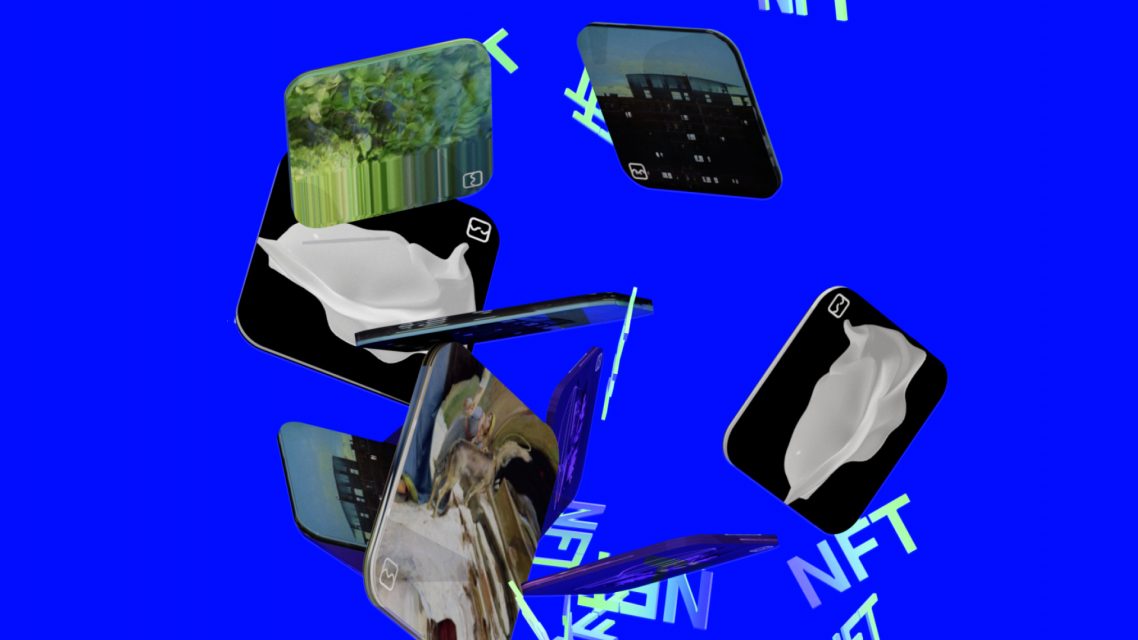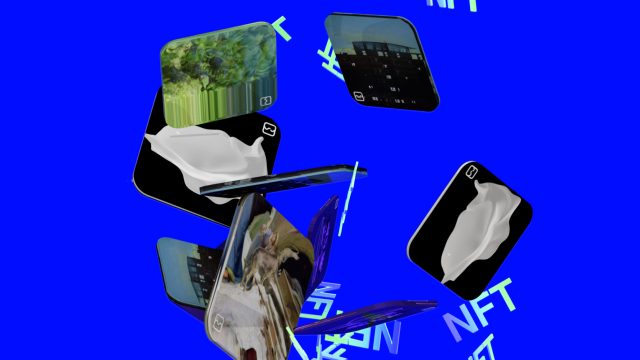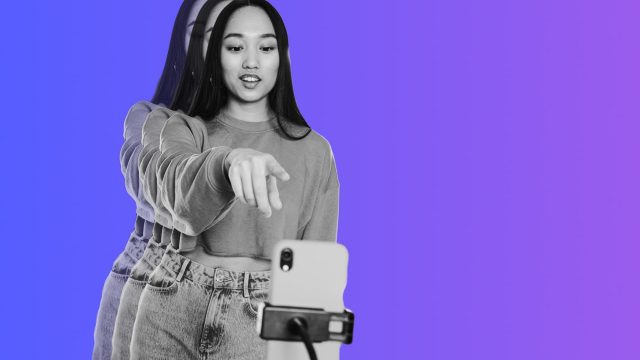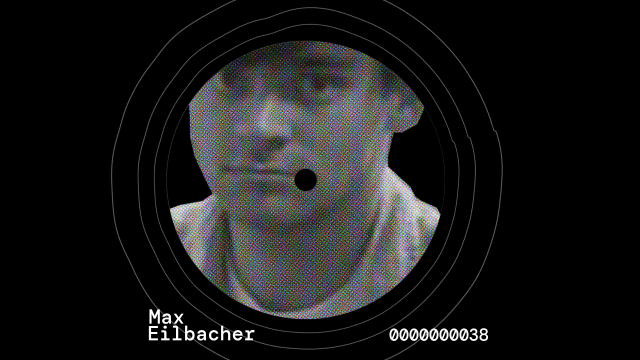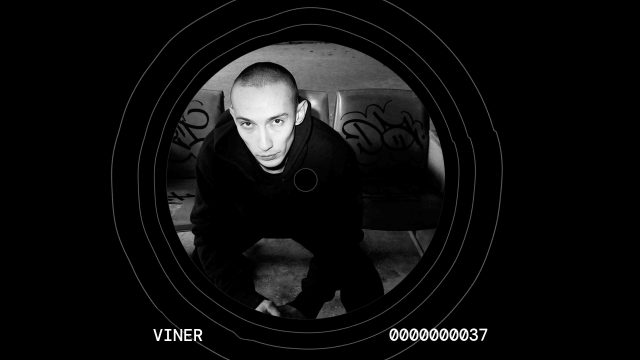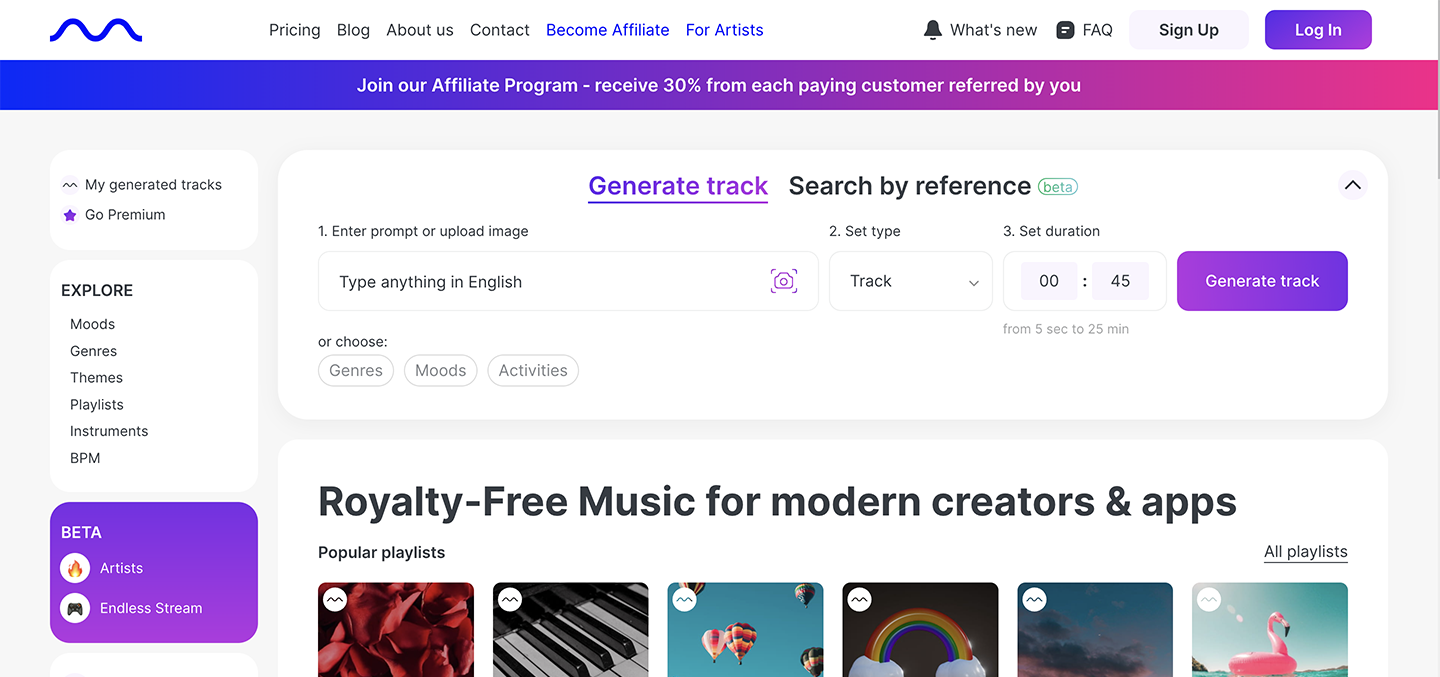
Create royalty-free AI music tracks with one click
Just describe what you want and get an instant track of any duration — and you will never meet any troubles with copyrights
Get startedMubert held its first Generative Music Competition Open Call this summer, giving artists an opportunity to collaborate with Mubert Studio and to compete for a chance to be featured in a full-page ad layout in The Wire magazine. As with all our projects, Mubert’s mission is to empower and protect creators. In this Open Call, the team wanted to support artists, help them promote themselves, and earn revenue through creating tokenized collections. Thus, five winners were offered a chance to create a collection of generative NFTs, which are now available on Rarible.
The submissions window was open from July 13 to August 22, the winners were chosen by the judging panel — Shane Woolman, Jay Glass Dubs, and Simon Ballard — and announced on September 1. Berke Can Özcan took first place with his Sorrow is nothing but worn-out joy piece, winning the feature in The Wire magazine, with Jodi Rose, Cecilia Thorausch, FuturFrukt, and ЭД9М making up the rest of the top-five artists.

All of the winning musicians entered the contest for different reasons. For Jodi, it was curiosity about the potential for collaboration with Mubert AI and the possibility to release an NFT together. For Berke, it was the opportunity to be featured in the magazine he religiously reads every month.
On the other hand, Anna Pishkina (ЭД9М) didn’t initially create her composition for the contest — she wanted to explore the idea of creating not just a stream, but a generative song with Mubert’s help. Her friend Ilya, with whom she makes music, trained a neural network to depict chthonic landscapes with Russian panel houses and turned it into a generative video. “Neurussia, dull mangled houses created by the neural network, generative video with crumbling and re-emerging panel buildings really suited the idea of an endless generative song and the Mubert environment,” she explains.
When approaching her piece, Jodi was focused on developing a continuation of her long-term creative project, Singing Bridges. “The source material is all field recordings made using contact microphones to capture the vibrations inside bridge structures around the world,” the artist elaborates, describing how she has been creating experimental music, live concerts, site-specific performances, and installations with bridges globally since 1995. This particular piece, Signal on the Silver Bridge, consists of three parts which explore the everyday “crossing” over bridges, the sound of the cables that raise the voice of the bridge to the sky and give a space for reflection on eternity and the spiritual through sound.
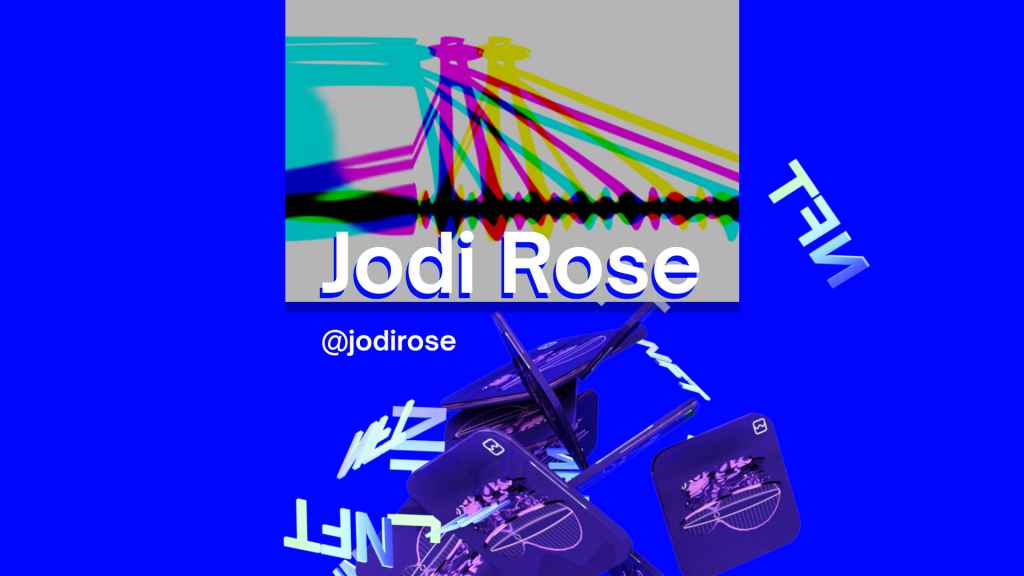
Cecilia also honed in on her immediate surroundings. For this piece, she stopped on Kottbusser Tor, which is very multifaceted. “Besides the chaos, the violence, … the bars, and the poverty, there is also an order in between,” Thorausch says. Originally wanting to convey the tension, she was able to capture the order in the chaos and Mubert’s AI made the compositions “more mellow and gentle.”
For most artists, this was their first time collaborating with artificial intelligence. “[I’ve] never ever gone anywhere near AI before,” Berke tells me, He wasn’t the only one — although Cecilia developed an interactive interface in Ableton during her studies, this competition was her first experience interacting this closely with AI. Nevertheless, both found the software very easy to use.
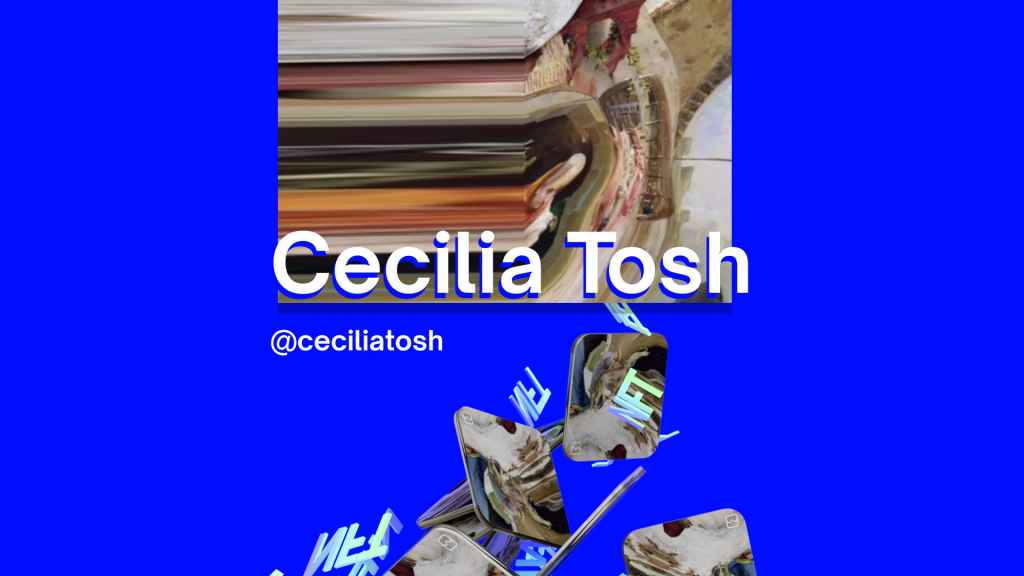
Jodi wasn’t new to experimenting with technologies but she quickly realized that all of those services required a steep learning curve. “I found myself overwhelmed by the coding needed to work with web audio or deep neural networks and transformer models,”. In fact, she found Mubert while researching how to start creating music with AI. “I like how user-friendly the interface is, the layout was clear and the process relatively straightforward.” For Anna, it was also a smooth transition having worked with a plethora of various software. “I liked the user interface: it was intuitive so I had no trouble preparing a sample pack and uploading the track,” she says.
At the same time, co-creating music with technology influenced the music-making process and gave more room for experimentation. Berke shares that when he wasn’t entirely in control of the outcome, it allowed him to hear it in a new way: in his words, “it helped focus on the colors more than trying to see the big picture”.
Pishkina (ЭД9М) had to re-invent her entire process, dedicating more time to improvisation and playing around with contrasting versions. “As a result, the work turned out to be more voluminous and creative,” adding that she will definitely continue using Mubert AI Studio in the future as both the process and the environment itself were really enjoyable, making you invent something new and become creative.
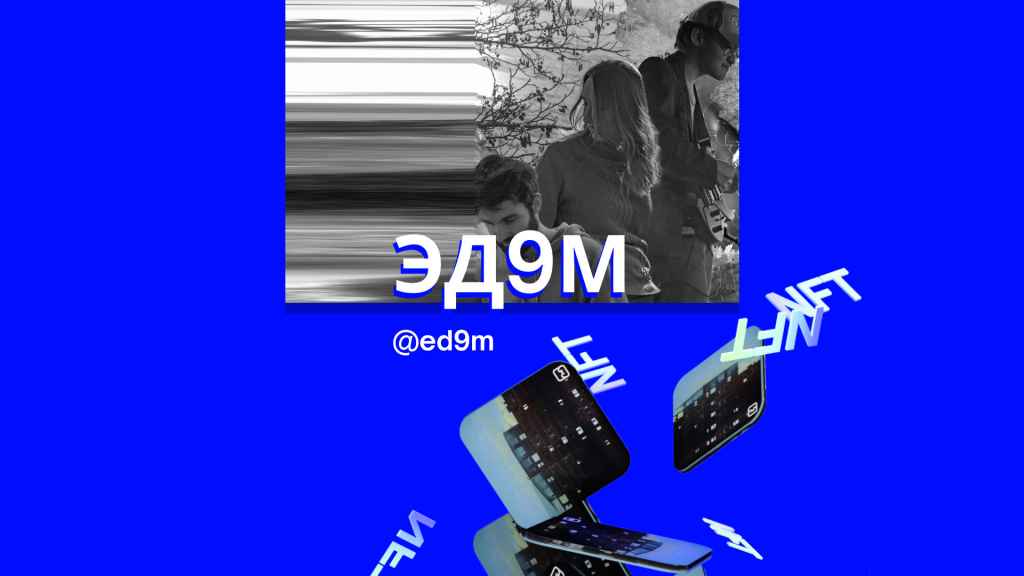
Even though Cecilia found the collaboration with the algorithm annoying as she couldn’t do exactly what she wanted to, she found that cooperating with the machine turned out to be exciting. Conversely, Jodi considered the part of sharing creative decisions with the technology to be mysterious but interesting, as it led her to discover ways to adapt the outcome to her style.
Going into the Open Call, none of the artists had any expectations and were just doing it out of curiosity and fun. However, getting to participate in the NFT collection and winning a feature ad in The Wire magazine has brought a lot of excitement. “Being in [the magazine] is something special for me because I [have been] a follower for many years,” Berke conveys.
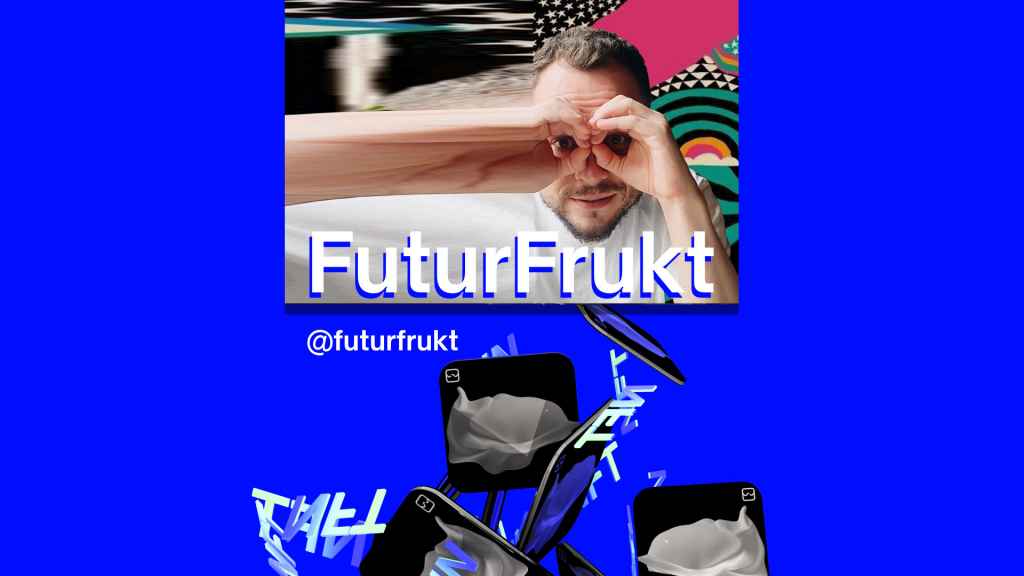
Anna admits that she believed her composition didn’t fit the format and was pleasantly surprised when she received the news that her stream made it into the top 5. “I am intrigued by the pitch Mubert makes to help musicians support their work in tangible ways and of course the chance to be on their radar with a high profile outcome and the NFT release is an amazing opportunity to reach new audiences,” Rose concludes.
Artist Interviews Artists Interviews NFTs OpenCallAI Music Company
Mubert is a platform powered by music producers that helps creators and brands generate unlimited royalty-free music with the help of AI. Our mission is to empower and protect the creators. Our purpose is to democratize the Creator Economy.
Generate Track API for Developers
